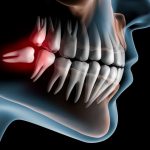Unveiling the Culprits: Top Reasons Why Adults Develop Black Teeth
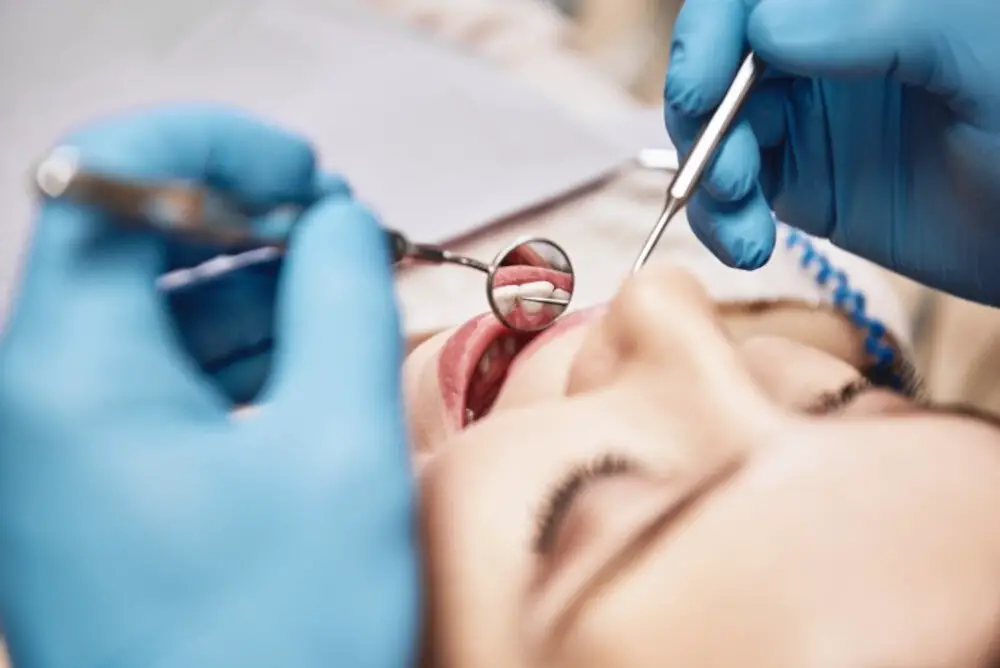
A bright, white smile is something that many individuals strive for, as it portrays good health and hygiene. Unfortunately, as we age, our teeth may begin to darken or become discolored, leaving us feeling self-conscious about our appearance. While there are numerous factors that can contribute to the development of black teeth in adults, some of the most common culprits include poor oral hygiene, dietary habits, and certain medical conditions. One of the most significant factors that contribute to the development of black teeth in adults is poor oral hygiene. When we neglect to brush and floss our teeth regularly, plaque and bacteria can accumulate on the surface of our teeth, leading to discoloration and decay. Additionally, failing to visit the dentist for routine cleanings and check-ups can exacerbate the problem, as tartar buildup can cause further staining and damage to the enamel. While poor oral hygiene alone may not necessarily lead to black teeth, it can certainly contribute to the problem and make it more difficult to reverse.
Black teeth can be an alarming and embarrassing issue for many adults. There are various reasons why this dental condition occurs, such as poor oral hygiene, tobacco use, excessive consumption of certain beverages like coffee, tea, and red wine, and medication side effects. Tooth decay, trauma, and aging can also cause black teeth. The appearance of black teeth can affect one’s confidence and self-esteem, leading to social withdrawal and mental health problems. It is essential to identify the root cause of the problem and seek appropriate dental treatment to prevent further damage and restore a healthy, bright smile.
Maintaining white teeth is not only important for aesthetic reasons but also for overall health. White teeth give off an impression of good health, hygiene, and confidence. People who have white teeth are often perceived as more attractive and approachable. Yellow or black teeth, on the other hand, can be detrimental to one’s self-esteem and social life. Furthermore, black teeth can indicate underlying health issues, such as gum disease or tooth decay, which can lead to serious health problems if left untreated. Therefore, it is crucial to maintain good oral hygiene and seek professional dental care to prevent black teeth and maintain a healthy, white smile.
Black teeth in adults can occur due to various reasons. One of the most common causes is poor oral hygiene, which leads to the accumulation of plaque and tartar on the teeth. Other culprits include excessive consumption of dark-colored foods and beverages, such as coffee, tea, red wine, and cola, which can stain teeth over time. Smoking and tobacco use are also major contributors to black teeth, as they contain tar and nicotine that can discolor teeth. Certain medications, such as antibiotics and antihistamines, can also cause black teeth as a side effect. Finally, trauma to the teeth or excessive fluoride intake can lead to black teeth in some cases.
Poor Oral Hygiene
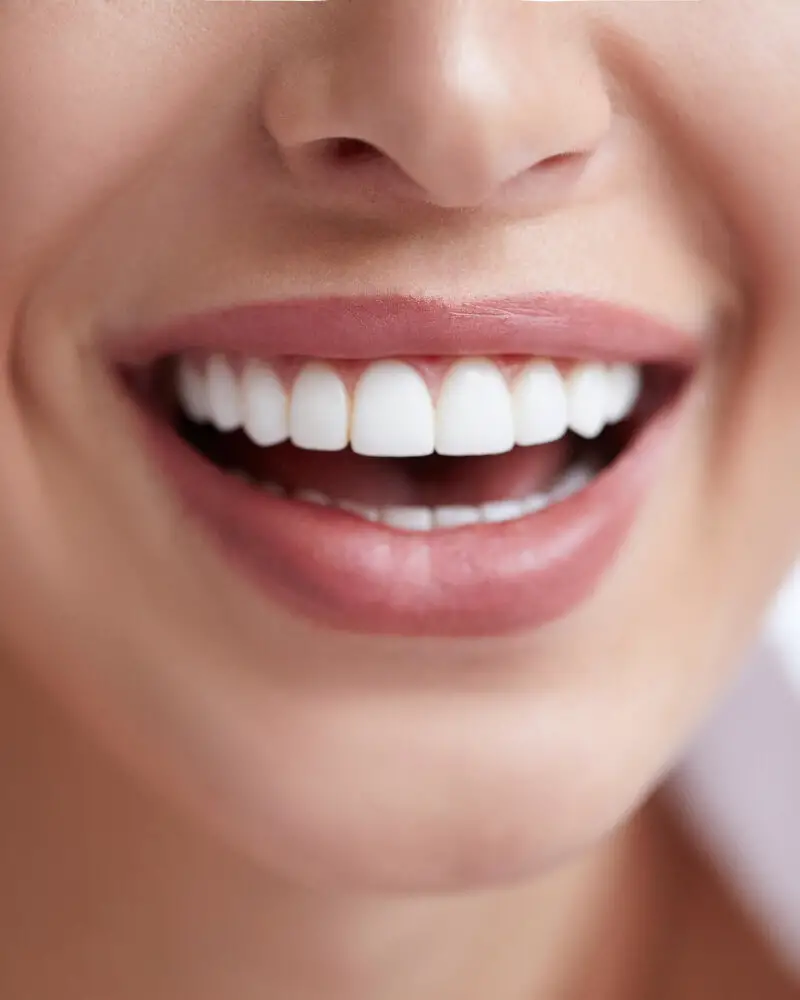
Poor oral hygiene is one of the most common culprits behind dark or black teeth in adults. When one fails to maintain proper oral hygiene, oral bacteria can thrive and multiply, leading to tooth decay, gum disease, and other dental problems. Plaque buildup is a primary consequence of poor oral hygiene, which can eventually cause teeth to darken, become discolored, or develop black spots. Additionally, smoking, excessive consumption of coffee, tea or other staining beverages, and neglecting regular dental check-ups and cleanings can also contribute to black teeth. Inadequate brushing and flossing practices can also lead to poor oral hygiene. Brushing twice a day for at least two minutes and flossing once daily can help remove plaque and bacteria, preventing tooth decay and gum disease. Not following this regime can cause bacteria to accumulate in the mouth, leading to the formation of tartar, which is a hard deposit that can only be removed by a dental professional. Therefore, it is essential to maintain proper oral hygiene practices and seek dental check-ups regularly to prevent black teeth and other dental complications.
Not brushing and flossing regularly can lead to black teeth due to the accumulation of plaque and tartar on the surface of the teeth. Plaque is a sticky film of bacteria that forms on the teeth and can cause tooth decay and gum disease. If left untreated, plaque can turn into tartar, a hard substance that can only be removed by a dental professional. Tartar buildup can lead to the discoloration of teeth and the development of black stains. Additionally, poor oral hygiene habits can lead to the accumulation of food particles and other substances that can stain the teeth, further contributing to the development of black teeth. Therefore, it is crucial to maintain good oral hygiene practices, including brushing and flossing regularly, to prevent the development of black teeth.
Poor oral hygiene can lead to a buildup of plaque and tartar on the teeth, which can cause discoloration and blackening. Plaque is a sticky film of bacteria that forms on the teeth and can lead to tooth decay and gum disease. Tartar is hardened plaque that cannot be removed by brushing alone and can only be removed by a dental professional. When left untreated, the buildup of plaque and tartar can cause the teeth to turn black and become unsightly. It is important to practice good oral hygiene, including brushing twice a day, flossing daily, and visiting the dentist regularly, to prevent the buildup of plaque and tartar and keep your teeth healthy and white.
Tobacco Use

Tobacco use is one of the most significant culprits responsible for black teeth in adults. Smoking cigarettes, chewing tobacco, or even using smokeless tobacco products can all contribute to the yellowing and staining of the teeth. Tobacco products contain tar and nicotine, which are two of the most potent substances that can cause discoloration. Tar, in particular, is a sticky substance that adheres to the enamel of the teeth, making them appear dark and unattractive. Smoking cigarettes or using other tobacco products can also lead to bad breath, gum disease, and even tooth loss, all of which can further exacerbate the appearance of black teeth. In addition to discoloration, tobacco use can also cause a host of other oral health problems. The chemicals in tobacco products can damage the gum tissue, leading to inflammation, bleeding, and even gum disease. Over time, tobacco use can also cause the enamel to wear away, making the teeth more susceptible to decay and cavities. For those who are struggling with black teeth, quitting tobacco use is one of the most effective ways to improve their oral health and restore the whiteness and brightness of their smile. With the help of a dentist and a commitment to a healthier lifestyle, it is possible to overcome the negative effects of tobacco and enjoy a healthier, more beautiful smile.
Smoking and chewing tobacco are notorious for causing a variety of dental problems, including tooth discoloration. Tobacco products contain nicotine and tar, which can stick to the surface of teeth and leave unsightly stains. The longer someone smokes or chews tobacco, the more likely they are to develop black teeth. In addition to staining, tobacco use can also lead to gum disease, tooth decay, and oral cancer. Quitting smoking and chewing tobacco is the best way to prevent tooth discoloration and other oral health issues.
Tobacco use, whether in the form of cigarettes, cigars, or chewing tobacco, is notorious for causing dental discoloration. The chemicals in tobacco, such as tar and nicotine, are primarily responsible for the unsightly yellow or brown stains that appear on teeth over time. Tar, a sticky substance found in tobacco smoke, adheres to the enamel of teeth and is difficult to remove with regular brushing. Nicotine, on the other hand, is a colorless chemical that turns yellow when it reacts with oxygen, causing teeth to become discolored. Additionally, tobacco use can lead to other dental problems, such as gum disease and tooth decay, which can further contribute to black teeth.
Certain Foods and Drinks
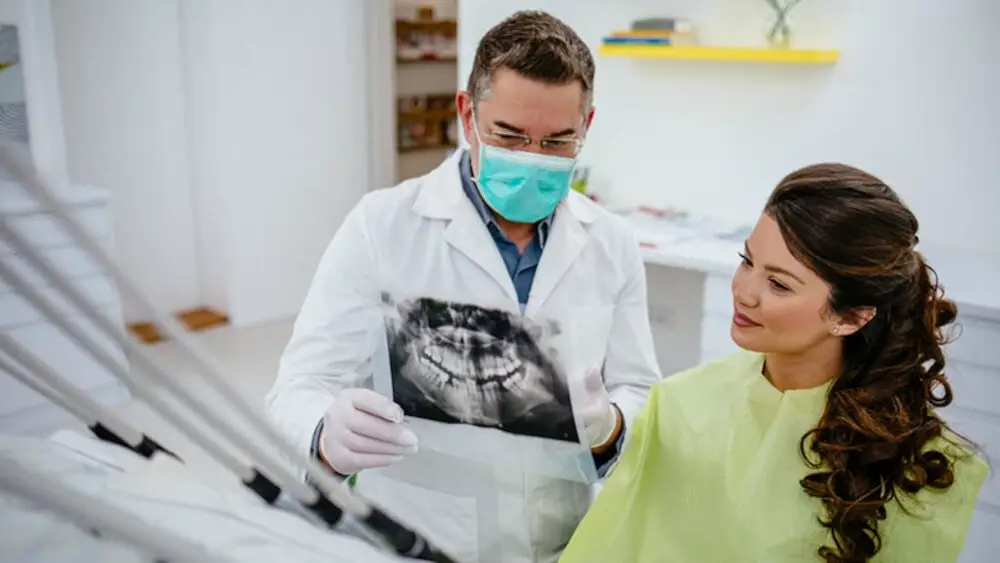
Certain foods and drinks are notorious for causing black teeth in adults. Dark-colored beverages such as coffee, tea, and red wine can stain teeth over time. These drinks contain chromogens, which are pigmented molecules that stick to the enamel of teeth. Additionally, drinks that are high in acidity, such as soda and sports drinks, can erode tooth enamel, exposing the darker-colored dentin underneath. This can lead to teeth appearing darker and more yellow than usual. Foods that are high in sugar and carbohydrates can also contribute to black teeth by promoting the growth of bacteria that produce acid and cause tooth decay. It’s not just the color of the food or drink that matters, but also the temperature. Hot beverages like coffee and tea can cause teeth to expand and contract, making them more susceptible to staining. On the other hand, cold drinks like iced tea and soda can cause teeth to contract, making them more prone to cracking and chipping. It’s essential to maintain a balanced diet and limit the consumption of these foods and drinks if you want to prevent black teeth. If you do consume them, it’s important to rinse your mouth with water afterward and brush your teeth regularly to remove any stains or plaque buildup. By being mindful of what you eat and drink, you can keep your teeth healthy and white for years to come.
Consuming certain foods and drinks can cause teeth discoloration due to their pigmentation or acidic properties. Dark-colored foods and drinks, such as coffee, red wine, and cola, contain chromogens that stick to tooth enamel and cause stains over time. Acidic drinks, like soda and sports drinks, erode tooth enamel, making it more susceptible to staining. Additionally, acidic foods, such as citrus fruits and tomatoes, can also contribute to tooth discoloration by weakening the enamel. Tobacco use is another major culprit of tooth discoloration, as nicotine and tar can leave stubborn stains on teeth. To prevent teeth discoloration, it is important to limit consumption of these foods and drinks, and to practice good oral hygiene habits such as regular brushing and flossing.
Black teeth can be caused by a variety of factors, including the consumption of certain beverages. Coffee, tea, red wine, and sugary drinks are all culprits that can stain teeth over time. Coffee and tea contain chromogens, which are compounds that stick to tooth enamel and cause discoloration. Red wine is acidic and contains tannins, which can also cause staining. Sugary drinks, such as soda and sports drinks, contain high amounts of sugar that can lead to tooth decay and discoloration. While these drinks can be enjoyed in moderation, it’s important to practice good oral hygiene and limit consumption to prevent black teeth.
Medications
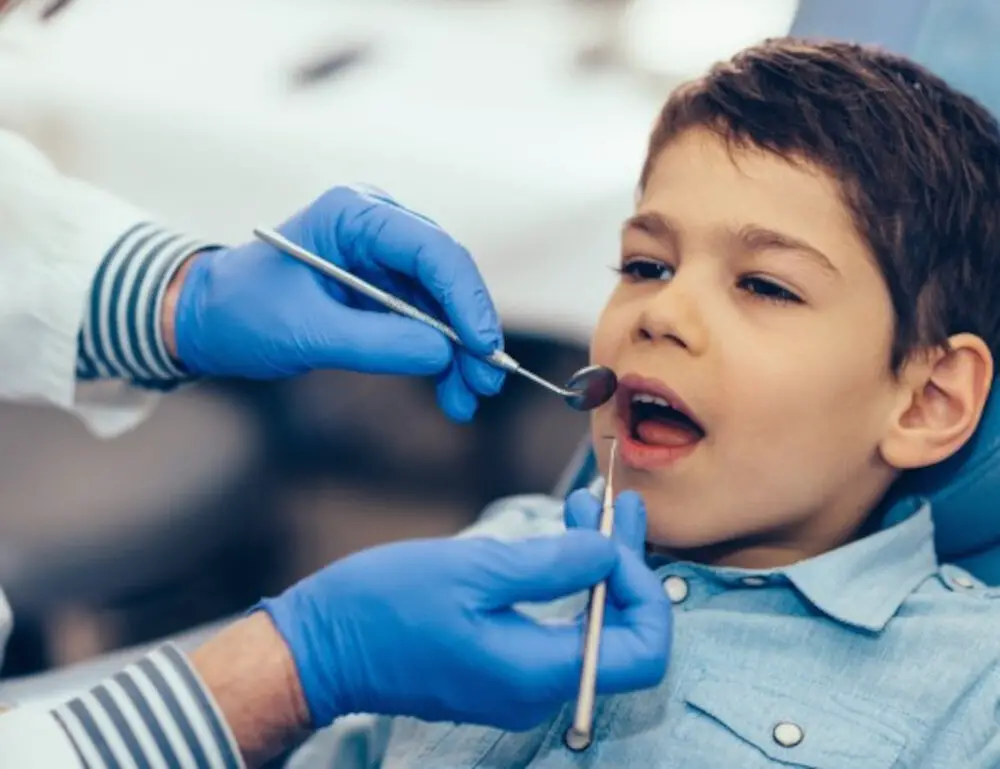
Medications can be a culprit in causing black teeth in adults. Certain medications that people take for their health can have side effects that cause discoloration of the teeth. One such medication is tetracycline, which is commonly used to treat various bacterial infections. Tetracycline can cause permanent staining of the teeth if taken during childhood or pregnancy. Other medications that can cause black teeth include antihistamines, antipsychotics, and some chemotherapy drugs. It is important to discuss any concerns about medication-related teeth discoloration with a healthcare provider. In addition to medication-related black teeth, poor oral hygiene can also contribute to the problem. Neglecting to brush and floss regularly can lead to the buildup of plaque and tartar, which can cause teeth to become discolored. Smoking tobacco and drinking dark-colored beverages like coffee, tea, and red wine can also stain teeth. Regular dental checkups and cleanings can help prevent black teeth caused by poor oral hygiene habits.
Certain medications can cause teeth discoloration due to their chemical composition and their effect on the body. Antibiotics such as tetracycline and doxycycline can cause yellow or brown stains on developing teeth in children, and also on adult teeth if taken for long periods. Antihistamines, antipsychotics, and high blood pressure medications can also cause teeth discoloration. These medications can cause dry mouth, which reduces saliva production, leading to a lack of buffering capacity of the mouth, and an increased risk of tooth decay and discoloration. It is essential to inform your dentist of any medication you are taking, as they can advise you on how to maintain good oral hygiene and minimize the effects of medication on your teeth.
In the article \Unveiling the Culprits Top Reasons Why Adults Develop Black Teeth,\ antibiotics and antihistamines are briefly mentioned as potential causes of tooth discoloration. Antibiotics, particularly tetracyclines, can cause yellow or gray stains on teeth if taken during tooth development. Antihistamines, on the other hand, can cause dry mouth, which can lead to an increase in bacteria and plaque buildup, ultimately contributing to tooth discoloration. While these medications are important for treating various medical conditions, it’s essential to be aware of the potential side effects they may have on oral health.
The discoloration of teeth is a common dental problem among adults, and black teeth can be a cause of embarrassment and low self-esteem. The primary causes of black teeth in adults include poor oral hygiene, smoking, excessive consumption of dark-colored foods and beverages, and some medications. Poor oral hygiene habits lead to the buildup of plaque, tartar, and bacteria, which can cause discoloration. Smoking can also cause black teeth as it contains nicotine and tar, which stain the teeth. Consuming dark-colored foods and beverages such as coffee, tea, red wine, and cola can cause staining of teeth. Additionally, some medications, such as iron supplements and antipsychotics, can cause black teeth as a side effect. Therefore, it is essential to maintain good oral hygiene practices, avoid smoking and limit the consumption of dark-colored foods and beverages to prevent the discoloration of teeth.
Maintaining good oral hygiene is crucial for preserving the natural color of teeth and avoiding discoloration caused by various factors. Brushing teeth twice a day with a fluoride toothpaste, flossing daily, and rinsing with mouthwash can help prevent the buildup of plaque and stains caused by food, drinks, and smoking. Additionally, avoiding habits that contribute to teeth discoloration such as excessive consumption of coffee, tea, and red wine, and using tobacco products can significantly improve the appearance of teeth. Regular dental check-ups and professional cleaning can also help identify and treat any underlying dental issues that could lead to black teeth. By adopting good oral hygiene practices and avoiding harmful habits, individuals can maintain a bright and healthy smile.
It’s essential to remember that seeking professional help is crucial when dealing with black teeth. While there are home remedies and over-the-counter products available, there may be underlying dental issues that require the attention of a dental professional. Neglecting to seek proper dental care can lead to the worsening of the condition and potential complications that can affect not only your oral health but your overall well-being. A visit to the dentist can help diagnose the root cause of black teeth and provide appropriate treatment options that will help restore your smile and confidence.
Conclusion
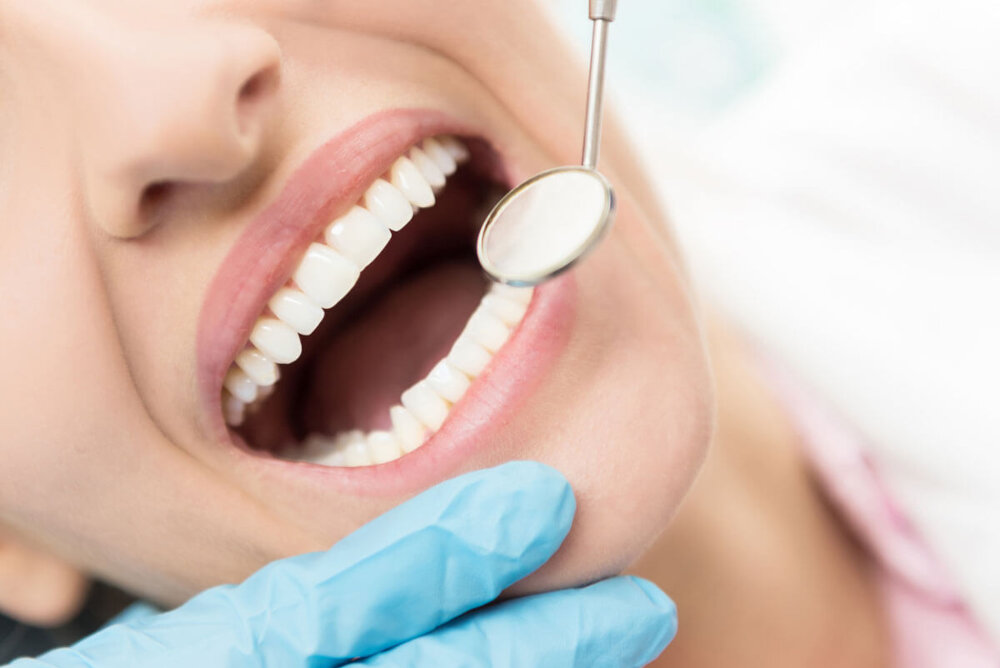
In conclusion, black teeth can be a disheartening and embarrassing condition for adults. However, it is comforting to know that there are various reasons why this condition occurs, and there are ways to prevent it. Poor oral hygiene, smoking, excessive consumption of certain foods and drinks, and certain medications are among the top culprits of black teeth. By maintaining good oral hygiene practices, quitting smoking, moderating the intake of staining foods and drinks, and consulting with a dentist or doctor about medication-induced staining, individuals can prevent black teeth from developing. It is essential to prioritize dental hygiene to maintain a healthy and confident smile.




